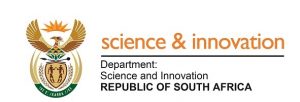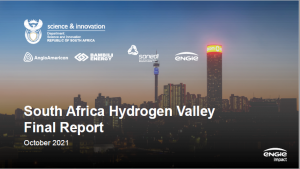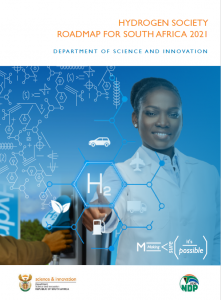Strategies & plans
Science Engagement Strategy
The Science Engagement Strategy (SES) was approved by the Minister of Science and Technology in January 2015. The SES formalises and provides strategic direction to the science engagement programme led by the Department of Science and Technology (DST), which dates back to 1998. An SES Implementation Framework providing an overview of projects and initiatives towards the implementation of the SES was drafted and approved by Executive Committee of the DST in March 2015.
This document provides more detail on how the SES will be executed. The level of information provided in the Implementation Plan is adequate to inform the development of individual project implementation strategies, through either the conceptualisation of new project strategies or the alignment of existing projects and activities with the SES.The Implementation Plan will be reviewed every five years and adjusted accordingly.
National Hydrogen and Fuel Cell Technologies Research, Development and Innovation Strategy
The use of hydrogen as an energy carrier, combined with fuel cell technologies to produce electricity, is attracting considerable interest from governments, international bodies and commercial companies worldwide. This is part of a global move towards developing sustainable energy systems and reducing greenhouse gas emissions.
This Strategy document sets out South Africa’s response to the globally emerging HFC sector. It acknowledges that the government needs to take the lead by funding an appropriate knowledge base and stimulating the innovation process. This creation of knowledge is essential in order to understand these new technologies, evaluate their local use and implications, develop suitable policies and stimulate commercial activities. It is envisaged that this will facilitate the development of high-level human resources and the creation of a manufacturing base in the medium to long term. In the short to medium term, through collaboration with international research organisations, South Africa can fast-track its research efforts and become a player in the evolving global market. The management of intellectual property will be a key factor in the success of these research efforts.
South Africa Hydrogen Valley Final Report
Hydrogen is a key priority for South Africa. In his last State of the Nation address, President Ramaphosa cited that hydrogen fuels cells are a national priority as an alternative energy source. Hydrogen presents a significant opportunity for economic development in South Africa, including the creation of new jobs and the monetization of the platinum industry. It is also a contributor to South frica’s decarbonization objectives, leveraging PP1, REDZ2 and other renewable development programs to produce green hydrogen, now at the centre of many sectorlevel green strategies (e.g. green steel, green buildings).
Finally, global commitments towards hydrogen production and demand create an opportunity for South Africa to engage in energy export at the international level. The South frican government’s Department of Science and nnovation (DS ), in partnership with Anglo-American, Bambili Energy and ENGIE are looking into opportunities to transform the Bushveld complex and larger region around Johannesburg, Mogalakwena and Durban into a Hydrogen Valley.
Hydrogen Society Roadmap For South Africa 2021
South Africa faces the challenge of securing clean, affordable and sustainable energy to power its economy and transition into a carbon-neutral society. The country’s overarching National Development Plan (NDP) 2030 advocates for increased investment in an energy sector that is both economically inclusive and environmentally sustainable. The NDP identifies, as a priority, the production of sufficient energy to ensure availability, accessibility and affordability while reducing the carbon intensity of the economy. In its quest to reduce emissions in the energy mix, South Africa has developed a highly respected Renewable Energy Independent Power Producer Procurement Programme (REIPPPP).
The country has made further significant commitments to integrating renewable energy (RE) sources through the Integrated Resource Plan 2019, while also pursuing its emissions-reduction targets based on commitments made in response to the 2015 Paris Climate Agreement (PA). With a sound foundation, hydrogen is well positioned to become a game changer in South Africa’s aspirations to move towards a net-zero carbon economy.




